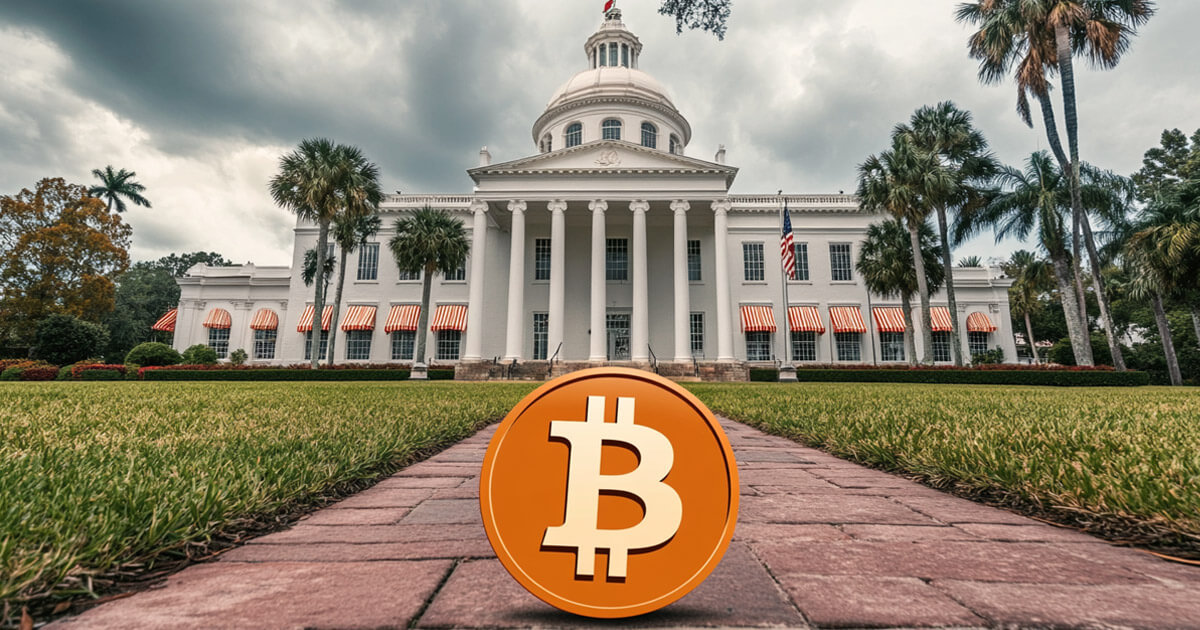Florida’s Pioneering Role in Bitcoin Integration: A New Era for State Financial Reserves
Senator Joe Gruters, a prominent figure in Florida’s political scene, has recently made headlines with his bold statement that Florida is poised to lead the nation in integrating Bitcoin (BTC) into state-level financial reserves. This announcement comes as a significant shift in the traditional financial landscape and marks an intriguing development for the future of digital currencies.
Background: The Evolution of Bitcoin in Florida
Bitcoin, a decentralized digital currency, was first introduced in 2009. Although it took years for Bitcoin to gain widespread recognition and acceptance, its potential as a financial instrument has become increasingly apparent. Florida, in particular, has shown a growing interest in Bitcoin, with several cities, such as Miami and Tampa, exploring the use of Bitcoin for city services and tax payments.
Senator Gruters’ Proposal: Integrating Bitcoin into State Reserves
Senator Gruters’ proposal to integrate Bitcoin into Florida’s state financial reserves signifies a more formal and significant step in acknowledging the digital currency’s value as a legitimate financial asset. The integration would involve the state’s treasury holding a portion of its reserves in Bitcoin, making Florida one of the first states in the nation to take such a bold move.
Benefits and Considerations
Diversification: By integrating Bitcoin into state financial reserves, Florida would be diversifying its investment portfolio, potentially reducing risk associated with traditional financial instruments. Bitcoin’s volatility, while a concern for some, can also serve as an advantage in times of economic instability, as it has historically shown to perform differently than traditional assets.
Technological Advancement: The integration of Bitcoin into Florida’s financial reserves would also serve as a technological advancement, demonstrating the state’s commitment to staying at the forefront of innovation. This could attract businesses and investors to the state, further boosting the economy.
Regulatory Challenges: However, integrating Bitcoin into state financial reserves also comes with regulatory challenges. Bitcoin is still largely unregulated, and there are concerns around its security, tax implications, and potential for money laundering. Florida would need to address these challenges to ensure the integrity of its financial reserves.
Impact on Individuals: Empowering Personal Financial Decisions
The integration of Bitcoin into Florida’s financial reserves could also have a ripple effect on individuals. As more states and institutions adopt Bitcoin, it may become a more mainstream financial instrument, empowering individuals to make more informed financial decisions. This could lead to increased adoption of Bitcoin for personal savings, investments, and day-to-day transactions.
Impact on the World: A Global Shift in Financial Landscape
Florida’s decision to integrate Bitcoin into state financial reserves could set a precedent for other states and even countries to follow suit. This could lead to a global shift in the financial landscape, with digital currencies becoming more widely accepted and integrated into traditional financial systems.
Conclusion: A New Era for Financial Reserves
Senator Joe Gruters’ proposal to integrate Bitcoin into Florida’s financial reserves represents a bold step towards embracing the future of digital currencies. While there are challenges and considerations, the potential benefits, including diversification, technological advancement, and increased adoption, make this an exciting development for the future of financial reserves.
- Florida could lead the nation in integrating Bitcoin into state financial reserves.
- Integration would involve the state’s treasury holding a portion of its reserves in Bitcoin.
- Benefits include diversification, technological advancement, and potential risk reduction.
- Regulatory challenges, such as security and tax implications, must be addressed.
- Individuals may be empowered to make more informed financial decisions as Bitcoin becomes more mainstream.
- Global shift in financial landscape could lead to increased adoption of digital currencies.





